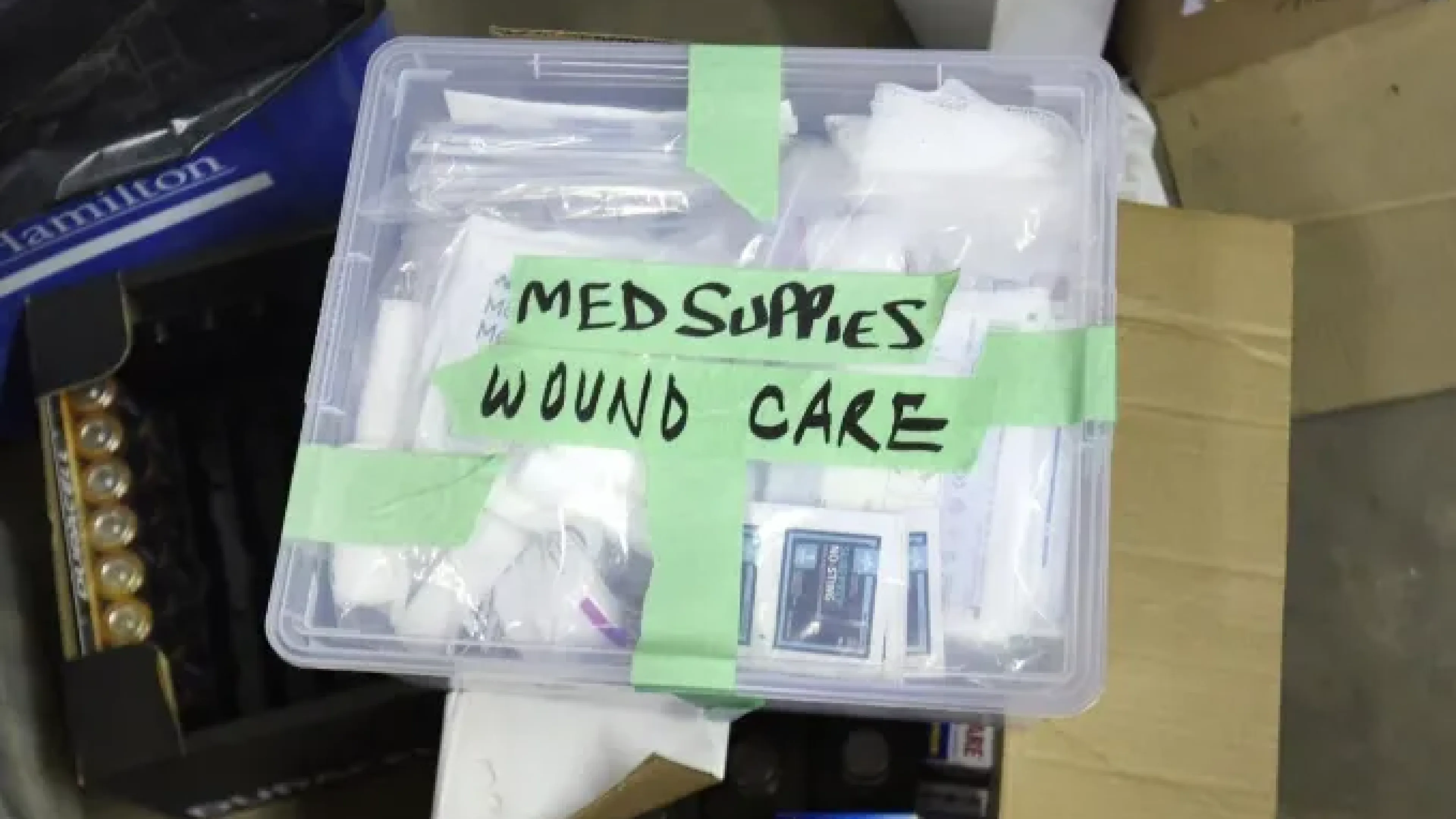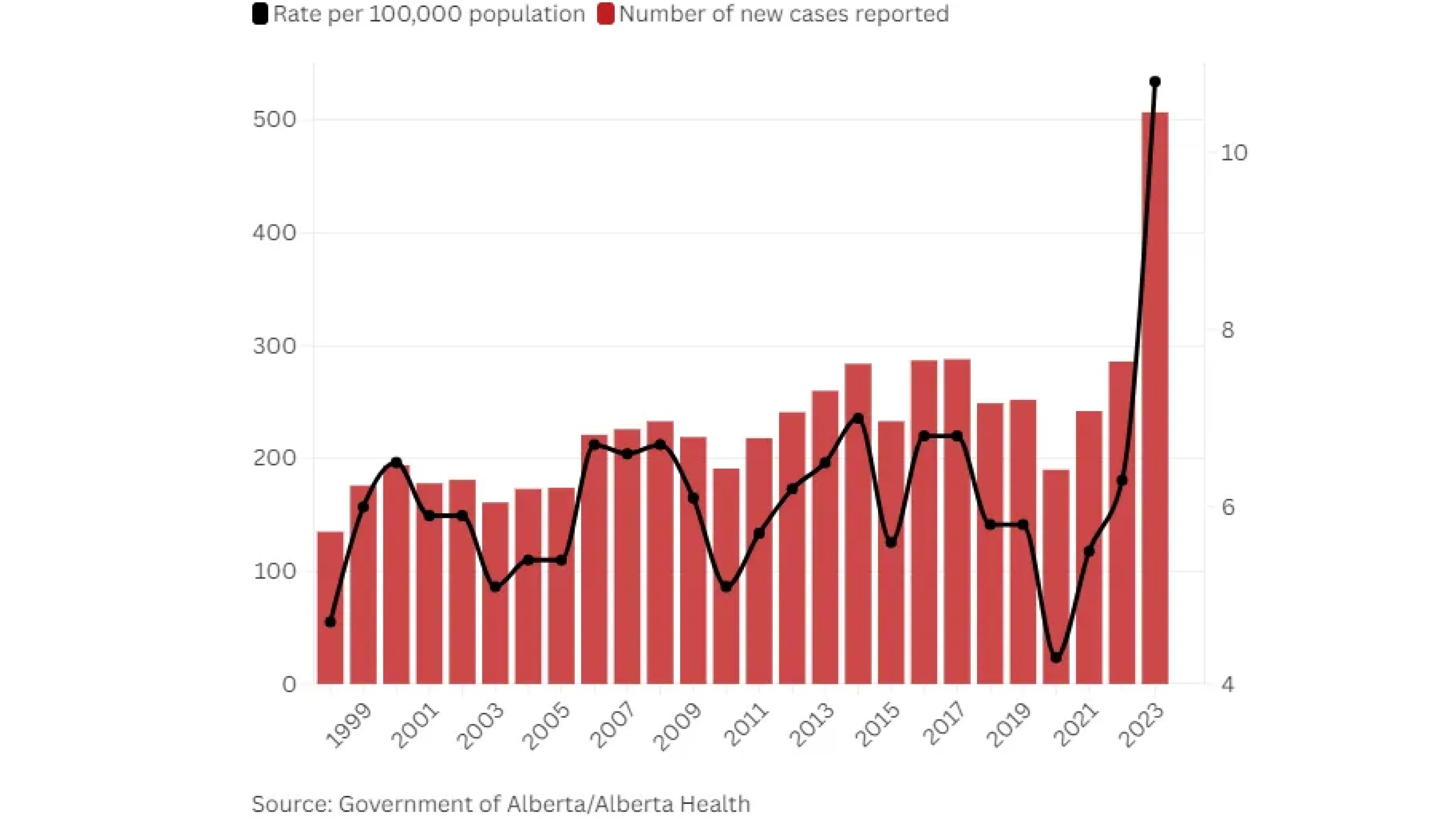You’re reading the web version of our email briefing on health policy, science and medical news. Sign up to get it next week.
Hi Healthwatchers, 👩🏻⚕️👨🏾⚕️👩⚕️
Welcome to this week’s edition. Today’s theme, if there is one: real people facing real challenges that could affect any of us.
Whether it's the critical shortages sending home-care patients to the ER, or concerns about COVID's lingering effects on our children's health, some of this week’s stories resonate on a deeply human level. Let's explore them.

Home-care patients across Ontario face a shortage of medical supplies, causing cancelled appointments and sending some to urgent care or the emergency room.
Why it's important: Nurses are scrambling to find supplies, with many relying on online, out-of-pocket purchases, and in some cases, reusing things, increasing infection-risk to patients.
Supply shocks began when the province switched to a new home care supplier in a bid to "modernize medical equipment and supplies," with the abrupt transition upending supply chains. Until the issue is resolved, patients and providers are left to figure things out as strain on hospitals builds.
Read more…

In a new study, children who had COVID were 1.5 times more likely to be diagnosed with type 2 diabetes compared to those who had other respiratory infections.
Why it's important: Findings suggest monitoring children in the months following illness could prevent long-term complications.
The study also made headlines in the Washington Post this week, and adds to a growing body of evidence linking COVID to diabetes. This raises bigger questions about viral triggers and autoimmunity, as seen with "type 1.5 diabetes," a poorly-understood hybrid form of the disease.
Read more…

New research suggests coffee during pregnancy isn’t linked to neurodevelopmental difficulties in children, despite historic concerns over its effects on fetal brain development.
Why it's important: After controlling for variables like smoking and alcohol-use, analysis of a large genetic database found no causal relationship between coffee and neurodevelopmental issues in children.
A feel-good story. This could reassure expectant mothers that their modest coffee intake isn’t risking the healthy brain development of their babies. If you’re pregnant and want more coffee in your life, talk to your doctor.
Read more…

Women in their 40s and 50s are struggling with debilitating menopause symptoms, leading to declines in workforce participation.
Why it's important: Menopause is driving women away from the workforce, while Canada’s health system fails to provide them with adequate support, especially around hormone therapy.
Decades of stigma, lack of physician training, and fear surrounding hormone therapy leaves women without appropriate medical care. Private clinics are emerging as an expensive alternative for some. But many women still suffer, with long-term health consequences going unaddressed.
Read more…

Reports show vulnerable patients, lacking adequate housing, social support, or proper medical care, may see MAiD as the only way to escape unbearable living conditions.
Why it's important: Experts are calling for a coordinated system to connect vulnerable patients with social and mental health supports during the assessment process for MAiD.
Social vulnerability, mental illness, and poor living conditions are pushing some people toward MAiD as a last resort. Even supporters of MAiD liberalization are questioning whether the system is pushing the most vulnerable toward an option they might otherwise not choose were the social safety net a bit less frayed.
Read more…

Alberta reported the largest year-over-year jump in HIV since the disease became reportable in 1998. An influx of mostly well-managed patients, largely due to immigration and refugee policies, is straining the province’s HIV programs.
Why it's important: While immigration explains part of the surge, HIV transmission is also increasing among heterosexual people, signaling gaps in Alberta’s sexual health education.
Experts say access to supervised consumption sites, needle exchanges, and education programs for people who use drugs would also help curb community transmission. Canada is currently the only G7 nation where HIV rates are rising.
Read more…
That’s a wrap for today.
Amid the buzz of daily headlines, some stories unveil deeper truths about our health and society. By exploring them, we not only stay informed, we better understand how they shape our lives. Thank you for being part of this conversation.
See you next week,
Nick Tsergas
Health News Editor
Canada Healthwatch
[email protected] | canadahealthwatch.ca
Stay informed.
On the most important developments in Canadian health.
Get Canada’s essential briefing on health policy, science, and system change. Get Briefing